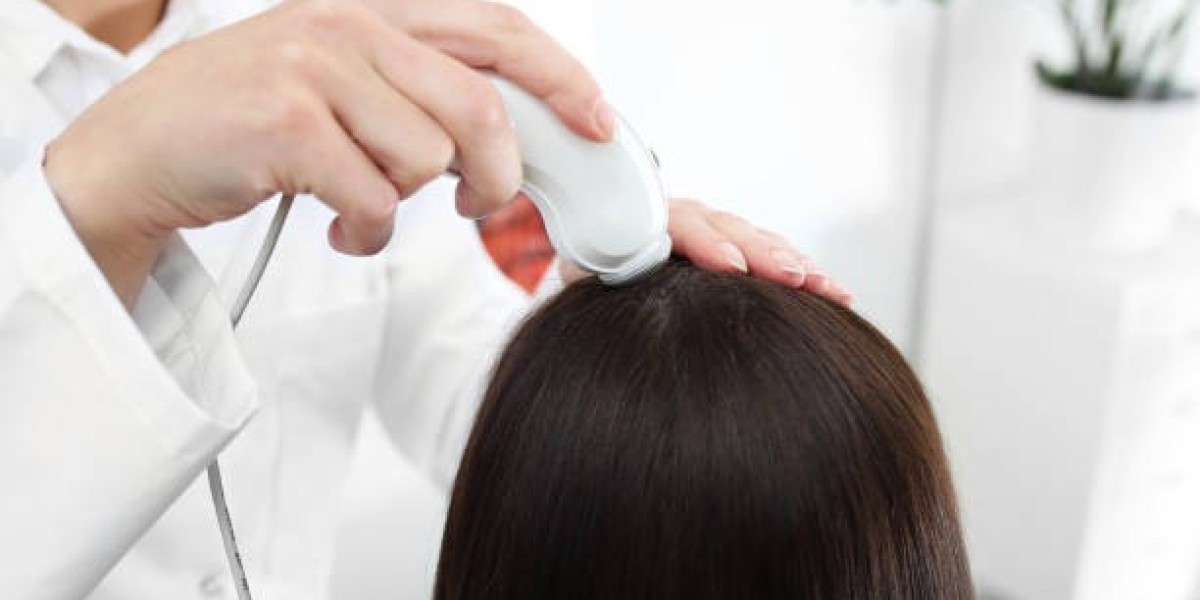Finding the right expert for your hair and scalp issues is crucial to restoring confidence and achieving healthy hair growth. Trichologists specialize in diagnosing and treating hair problems, using advanced analysis techniques to tailor effective treatments. This comprehensive guide explores the hair analysis and diagnosis procedures performed by the best trichologists in Riyadh, so you can understand what to expect and make informed decisions about your hair health.
The Role of the Best Trichologists in Riyadh in Diagnosis
To address hair issues effectively, it’s essential to get tested by the best trichologists in Riyadh(أفضل أخصائيي علاج الشعر في الرياض) who use detailed hair analysis and diagnosis procedures. They employ a combination of visual inspection, microscopic examination, and patient history evaluation to form a complete picture of your hair health. This multi-step diagnostic approach helps uncover hidden problems like scalp inflammation, follicle damage, or nutritional deficiencies that might be contributing to hair loss or thinning.
Initial Consultation and Patient History
During your first visit, the trichologist collects detailed information about your hair care routine, lifestyle, medical history, diet, and any hair products you use. This data provides context that is critical for accurate diagnosis since several factors outside scalp health could influence hair problems.
Physical and Visual Scalp Examination
Next is a hands-on examination of your scalp and hair. Using specialized lights and magnifiers, the trichologist checks for signs of inflammation, scaling, redness, irritation, or unusual hair shedding patterns. This non-invasive examination helps highlight scalp conditions that may not be visibly obvious.
Hair Pull Test and Hair Count
The trichologist might gently pull a small section of hair to assess hair strength and shedding levels. Counting the number of hairs that fall out reveals whether your hair loss is within a normal range or indicative of a medical concern.
Advanced Diagnostic Tools Used by Top Trichologists
To deepen the understanding of your scalp and hair condition, the best trichologists in Riyadh rely on advanced technology that increases diagnostic accuracy.
Trichoscopy
A highly effective method, trichoscopy involves using a digital dermatoscope to magnify the scalp and hair follicles. It allows the trichologist to detect abnormalities such as miniaturized hair, follicle damage, or early signs of scalp diseases. Images can be captured and tracked over time to monitor treatment progress.
Scalp Biopsy
In rare cases where diagnosis is unclear, a small skin sample from the scalp may be taken for microscopic analysis. This procedure provides detailed information about follicle health and scalp conditions, helping differentiate between types of alopecia and other disorders.
Blood Tests and Nutritional Analysis
Since hair health reflects overall wellness, blood tests are sometimes recommended to check for hormonal imbalances, thyroid issues, or nutrient deficiencies (e.g., iron, vitamin D) that could be triggering hair loss.
Why Diagnosis is Key Before Treatment
Accurate diagnosis by the best trichologists in Riyadh ensures that treatments target the root cause rather than just symptoms. Hair loss and scalp problems can result from a variety of reasons including genetics, stress, infections, or nutritional deficits. A personalized diagnosis allows creation of an effective treatment plan, which may include topical solutions, oral supplements, lifestyle adjustments, or medical interventions.
What Patients Should Expect After Diagnosis
Once diagnosis is complete, the trichologist discusses the findings and explains the hair condition in simple terms. They design a treatment strategy aligned with your hair goals and encourage regular follow-ups to adapt the plan as needed. This proactive and educated approach maximizes the chances of hair recovery and scalp health maintenance.
Tips for Maintaining Healthy Hair Between Visits
While managing hair and scalp health with a trichologist’s guidance, patients can adopt daily habits that support growth and prevent damage. These include:
Using gentle, sulfate-free shampoos
Avoiding excessive heat styling and harsh chemical treatments
Maintaining a balanced diet rich in hair-friendly nutrients
Managing stress through relaxation techniques
Keeping the scalp clean but not overly dry or oily
FAQs
How do I know if I need to see a trichologist for my hair problems?
If you experience persistent hair thinning, excessive shedding, scalp itching, or unusual hair texture changes, consulting a trichologist helps identify the cause before the condition worsens.
What is the difference between a trichologist and a dermatologist?
Trichologists specialize in hair and scalp health specifically, while dermatologists cover all skin-related conditions. Both can treat hair issues, but trichologists focus exclusively on hair analysis and treatments.
Are hair analysis tests painful or invasive?
Most hair analysis procedures like trichoscopy and hair pull tests are non-invasive and painless. Only in rare cases might a scalp biopsy be recommended, which involves minor discomfort but is generally well-tolerated.
Can hair problems diagnosed by trichologists be permanently cured?
The outcome depends on the underlying cause. Some conditions like androgenic alopecia require ongoing treatment, while hair loss from nutritional deficiencies or stress may be fully reversible with proper care.
How often should I visit the trichologist for hair monitoring?
Initial follow-ups are usually scheduled every 3-6 months to track progress, but frequency may vary based on the treatment plan and the severity of your hair issue.
Is blood testing always necessary during trichological diagnosis?
Not always, but blood tests are useful when hormonal imbalance, thyroid problems, or nutritional deficiencies are suspected as contributing factors to hair loss.






